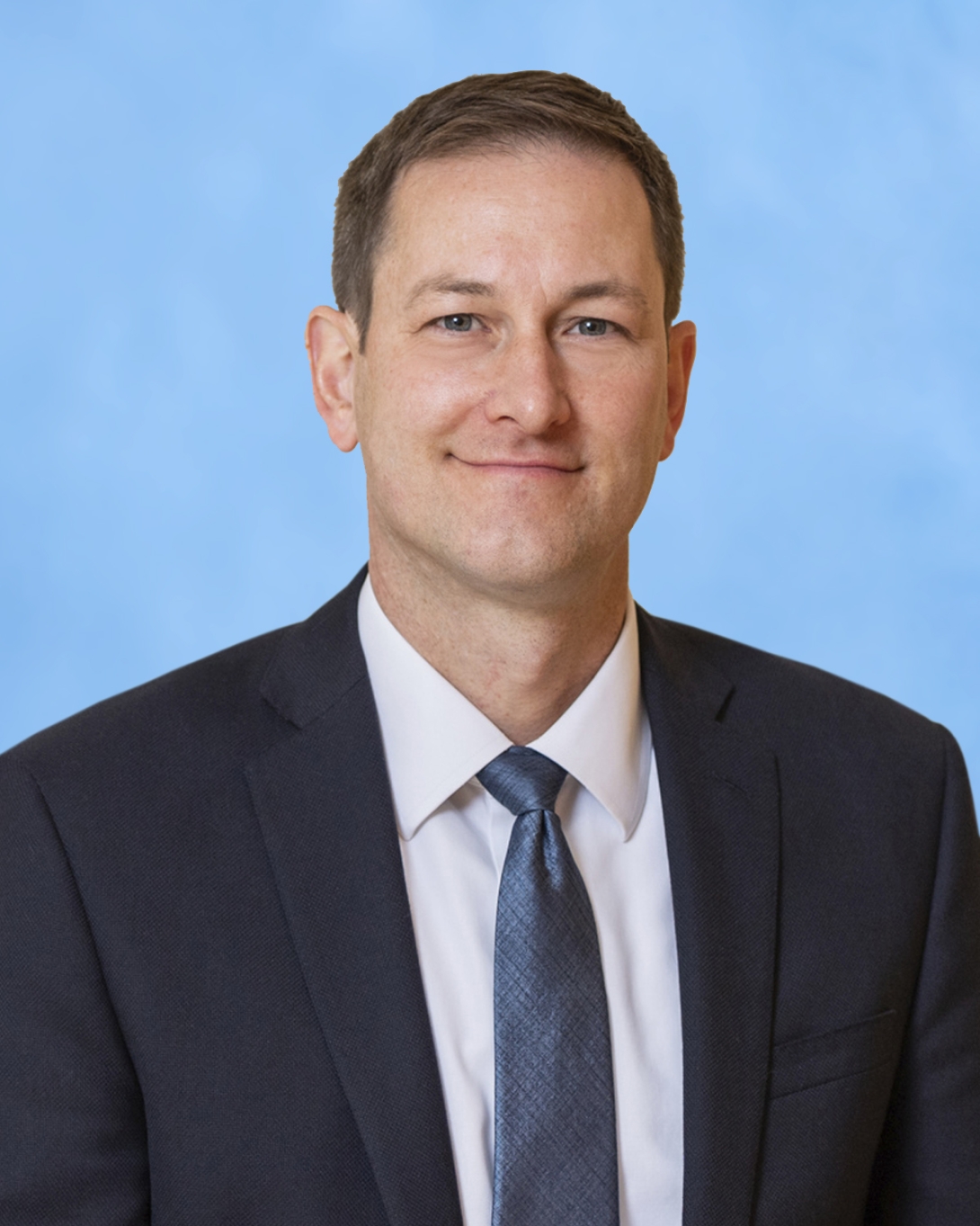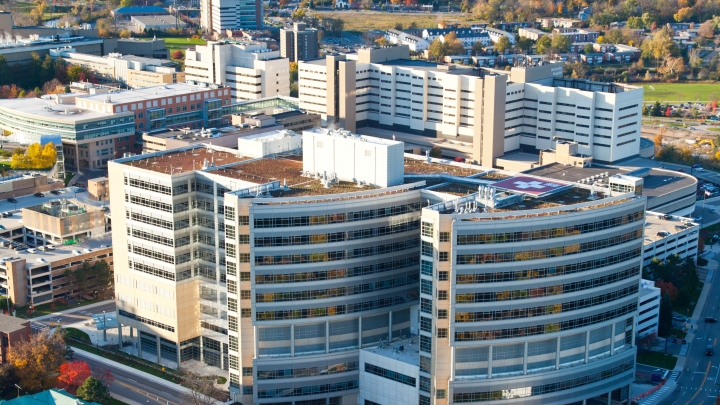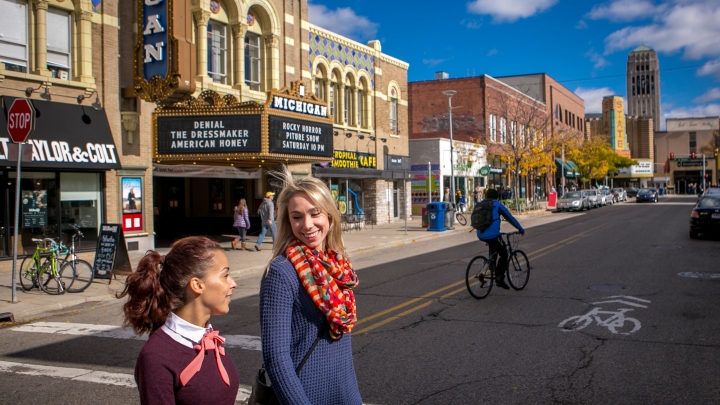
The U-M Medical School Norman W. Thompson Fellowship in Comprehensive Endocrine Surgery provides specialized training in all aspects of endocrine surgery over a 1-year clinical and integrated research program at one of the country’s top academic medical centers.
The U-M Medical School Division of Endocrine Surgery was the first of its kind in the country. Established by Norman W. Thompson in 1979, a founding member of both the American Association of Endocrine Surgeons and the International Association of Endocrine Surgery, the Division is one of the largest and busiest in the country and has a rich history. Many past and present leaders in endocrine surgery have come through our doors to train here or visit, and numerous breakthroughs in the fields of endocrine surgery, endocrinology, endocrine radiology and nuclear medicine have occurred within our walls.
Established in 1984, and the first Fellowship of its kind in the country, the Norman W. Thompson Fellowship in Comprehensive Endocrine Surgery is designed to facilitate the transition of trainees to independent endocrine surgeons who can confidently manage the full spectrum of endocrine surgical disease.
Fellowship applicants are considered through the American Association of Endocrine Surgeons (AAES) fellowship match program.
Applications should include:
- A current curriculum vitae
- 3 letters of recommendation
- A 1 page personal statement
Learn more about applying for this fellowship through the AAES
Taubman Center, Room 2920F
1500 East Medical Center Drive
Ann Arbor MI 48109-0331
The Norman W. Thompson Fellowship in Endocrine Surgery is designed to allow the fellow to build a strong foundation in the clinical care of patients with basic and complex endocrine surgical disorders. The goal of the fellowship is to facilitate the graded transition of the trainee to an independent endocrine surgeon who is confident in the management of patients with the full spectrum of endocrine surgical disorders.
The Division of Endocrine Surgery performs about 1000 endocrine operative cases annually. This includes 400-500 thyroid, central neck and lateral neck operations, 350-400 parathyroidectomies, 5-10 endocrine pancreas operations, and 40-70 adrenal operations each year, providing ample clinical training. Complex re-operative cases are routinely performed, and the Fellow has an optional opportunity to maintain some routine general surgery as well. No trauma or acute care surgery call is required.
The Thompson fellow begins the year learning management and technical principles paired 1-on-1 on a weekly basis with the other endocrine surgical faculty on a rotating basis in both the clinic and operating room. A graded progression of and transition to increased independent responsibility occurs during the year. When appropriate, based on progress made during the year, the Fellow will eventually maintain their own clinic and operative schedule, including operating with general surgery trainees. Fellows develop skills in numerous operative techniques, including modified radical neck dissection, minimally invasive thyroid, and parathyroid techniques, and retroperitoneoscopic and robotic adrenalectomy, among others. The year also includes exposure to outpatient clinical care, endocrine pathology, radiology and nuclear medicine, and intraoperative parathyroid hormone monitoring. Training to hone skills with cervical ultrasound, FNA biopsy, and flexible laryngoscopy will be incorporated as well. Finally, education in radiofrequency and ethanol ablation techniques for thyroid nodules is available through our Interventional Thyroid Clinic.
The U-M Medical School Endocrine Oncology program is world renowned for its adrenal cancer program and sees one of the highest volumes of adrenal cancer patients in the world. Extensive contact with endocrinologists, endocrine pathologists, radiologists, oncologists, and nuclear medicine specialists is ensured.
Fellows are considered members of the faculty and are funded for 1 year as a Clinical Instructor in the Department of Surgery, enjoy numerous opportunities to advance their clinical skills participate in clinical and/or basic science research, and are afforded all the rights and responsibilities of a faculty member. An administrative assistant, OR scheduler, inpatient physician assistants and outpatient clinical nurses are provided as support. There is also a CME fund for the fellow.
Current fellows are training to become future leaders in surgery. We emphasize teamwork, excellence, and leadership while preparing our fellows with resources to be successful in their careers.
Fellows participate in weekly endocrine service teaching conferences as well as monthly Division, General Surgery Section and Departmental meetings. Fellows participate in medical student and resident educational lectures, review sessions, practical hands-on skills labs, and Endocrinology Fellow conferences. The weekly Multidisciplinary Endocrine Oncology tumor board offers a unique opportunity to discuss complex endocrine surgical cases. Experience in practice building, leadership development, and the business of medicine is also provided.
The Michigan Promise aims to empower faculty members and residents in the Department of Surgery to achieve professional success. We support initiatives connected to environment, recruitment, leadership, achievement, innovation and outreach.
Contributions to the field of endocrine surgery through research and scholarly work is required and the fellow is provided mentorship and resources to complete this research during the fellowship. A robust clinical database system with thousands of patients and a statewide collaborative network in endocrine surgery provides ample material for clinical research projects. Opportunities for basic science research are also available and are wide ranging given the top tier research setting at the U-M Medical School.
- Tyler Fields, MD
- Anee Sophia Jackson, MD
- Hunter Underwood, MD
- Anna Z. Fashandi, MD
- Samuel E. Long III, MD
- Jon A. Nelson, DO

Research Professor
Clinical Associate Professor of Surgery

Expand your career trajectory in a high-volume academic medical center that also supports and excels in a wide range of basic science, translational and clinic outcomes research programs.

We find a new reason to love Ann Arbor nearly every day — year-round outdoor activities, cultural experiences, a growing food scene, and a welcoming, family-friendly atmosphere are just a few that come to mind. Explore all that Ann Arbor and our surrounding communities have to offer.